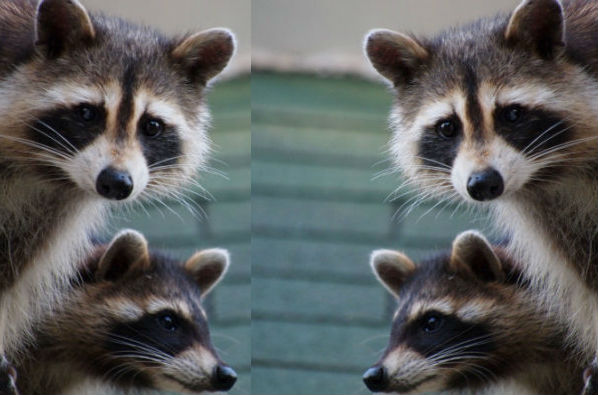 The Health Department today announced that it has identified four raccoons with rabies in and around Manhattan’s Inwood Hill Park since January. These are the first rabid raccoons identified in Manhattan since 2011, following an intensive vaccination effort where the Department trapped, vaccinated and released almost 500 raccoons in and around Central Park. The Health Department is reminding New Yorkers to stay away from raccoons and other wild animals that can carry rabies. The Parks Department is posting signs in Inwood Hill Park warning residents to stay away from raccoons. To date this year, six rabid animals have been identified in New York City: four raccoons from upper Manhattan (all in or near Inwood Hill Park), one raccoon from the Bronx, and one raccoon from Staten Island. There are no known bites or exposures to these animals.
The Health Department today announced that it has identified four raccoons with rabies in and around Manhattan’s Inwood Hill Park since January. These are the first rabid raccoons identified in Manhattan since 2011, following an intensive vaccination effort where the Department trapped, vaccinated and released almost 500 raccoons in and around Central Park. The Health Department is reminding New Yorkers to stay away from raccoons and other wild animals that can carry rabies. The Parks Department is posting signs in Inwood Hill Park warning residents to stay away from raccoons. To date this year, six rabid animals have been identified in New York City: four raccoons from upper Manhattan (all in or near Inwood Hill Park), one raccoon from the Bronx, and one raccoon from Staten Island. There are no known bites or exposures to these animals.
“Rabies is a serious illness that poses a danger for you and your pets,” said Health Commissioner Dr. Oxiris Barbot. “Keep a close eye on your pets when you take them outside and if you see a wild animal – such as a raccoon – maintain a safe distance and do not approach it. Get your pets vaccinated against rabies, and if you think they’ve been bitten by a rabid animal, call 311.”
“I urge residents throughout the community to vaccinate their pets and maintain a close vigilance when walking in parks with their pets, by keeping a close eye on them and the surrounding areas. All individuals should maintain their distance if they cross paths with a wild animal and call 311 immediately to ensure their safety as well as the safety of their fellow residents.”
“Rabies is a serious danger for the entire community, human and pet alike,” said Congressman Adriano Espaillat (NY-13). “I urge residents throughout the community to vaccinate their pets and maintain a close vigilance when walking in parks with their pets, by keeping a close eye on them and the surrounding areas. All individuals should maintain their distance if they cross paths with a wild animal and call 311 immediately to ensure their safety as well as the safety of their fellow residents.”
“The City has done a great job keeping our wildlife free from rabies, but sometimes Mother Nature has other ideas,” said Senator Robert Jackson. “I urge my constituents with pets to make sure their animals are up to date on their vaccines. Stay alert when enjoying our beautiful parks, and if you see a wild animal acting strangely, leave the area and call 311.”
People and unvaccinated animals can get rabies through a bite from an infected animal. To reduce the risk of rabies, New Yorkers should respect wildlife and avoid contact with all wild animals as well as stray or unfamiliar dogs and cats. Any animal that seems sick, disoriented or unusually placid or aggressive should be reported by calling 311.
Since 1992, when animal rabies surveillance began, over 600 animals have tested positive for rabies in New York City. Raccoons are the most commonly reported rabid animal in New York City. Staten Island and the Bronx have reported more rabid raccoons than Queens and Brooklyn. Manhattan experienced a large outbreak from 2009 to 2011, during which 138 rabid raccoons were reported from in and around Central Park. In addition to raccoons, other animals that commonly test positive for rabies in New York City include skunks, bats and cats.
To protect yourself against rabies:
Do not touch or feed wild animals, stray dogs or cats.
Keep garbage in tightly sealed containers.
- Respect wildlife. Enjoy them from a distance, and avoid contact with all wild animals as well as stray or unfamiliar dogs and cats.
- Any animal that seems sick, disoriented or unusually quiet or aggressive should be reported by calling 311.
Do not try to separate animals that are fighting.
If you are bitten by an animal, follow these steps:
Immediately wash the wound with soap and water and continue irrigating the wound for 10 to 15 minutes. This will help kill and remove any rabies virus that may have entered the wound.
If the exposure was from a dog or cat, try to get the pet owner’s name, address and phone number or get information for any person that may be able to identify the animal.
- Report dog and cat bites through 311 or to your health care provider. This will help the Health Department follow up with the pet owner.
- Contact your health care provider and ask if you need to be vaccinated.
If bitten by a wild animal, call 311 to report the bite and find out if the animal can be captured and tested for rabies.
To protect your pet against rabies:
- Make sure your dog or cat is up-to-date on rabies vaccinations. If you are unsure, contact your veterinarian. If you are experiencing financial hardship, please visit the Health Department’s dog licensing page for upcoming free vaccine clinics.
- Keep your dog leashed while outdoors unless at a specified off-leash area or park.
- Do not leave your pets outdoors unattended.
- Feed pets indoors.
- If your pet has been in contact with a raccoon, skunk, bat or any other animal that might be rabid, contact your veterinarian, and report the incident to 311.
For more information about rabies in New York City, visit nyc.gov/health and search “rabies.”
Become a Harlem Insider!
By submitting this form, you are consenting to receive marketing emails from: . You can revoke your consent to receive emails at any time by using the SafeUnsubscribe® link, found at the bottom of every email. Emails are serviced by Constant Contact








